





STOKE ST MARY AND DISTRICT HISTORY GROUP
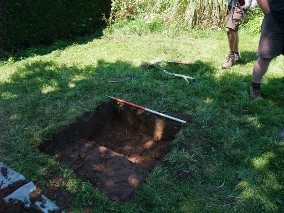

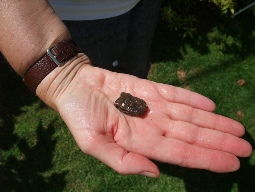
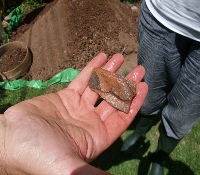
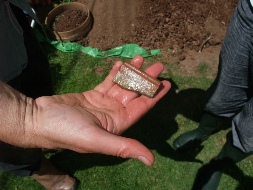
Higher Broughton Farm
The Orchard
Medieval Pottery
12h Century Pottery
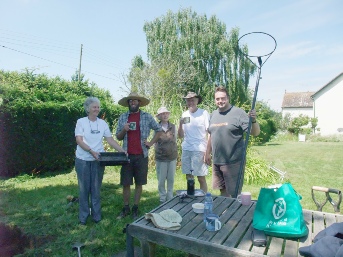
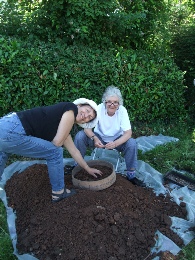
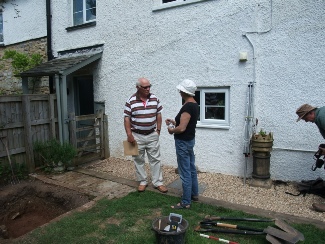
Tony and Steff at the Orchard
Bob Croft taking official photos
Meriel and Steff sifting the earth
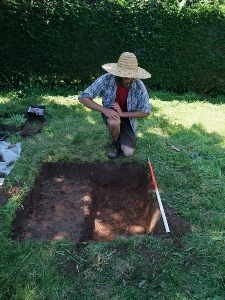
Mark preparing the dig for an official photograph
The Team at Higher Broughton having a well earned coffee break
The first village dig having been so successful, everyone was keen to see what could be found at Higher Broughton Farm and the Orchard. Bob Croft had arranged for some archeological students from Richard Huish to come along for first hand experience of a dig, So the Villagers spent the morning at Higher Broughton farm, whilst the students worked at the Orchard, and in the afternoon we swapped over.
At Higher Broughton Farm, we found an excellent spot, conveniently in the shade, and very soon started making finds. Some possible 12th Century pottery, similar to that found at Fyrse and Tuckers, so hopefully confirming that it was an established village by the 12th century. We then found found a lot of flints, which had obviously been “knapped”. Possibly Bronze Age and from as far away as Beer.
The dig at the Orchard also produced 12th century pottery and some medieval pottery as well. There was the usual old china and metal but also an old cobble stone -
A very successful day and much enjoyed by all who took part.
Bob Croft is hopefully going to give a talk to the history group in November.
STOKE ST MARY VILLAGE DIG -
3 JULY 2014
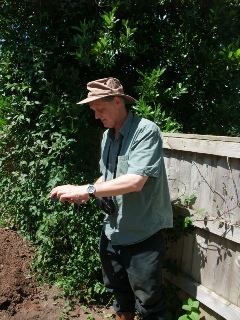
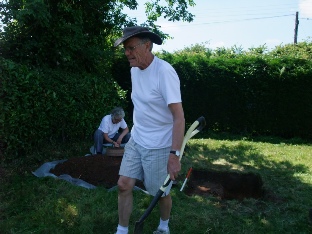
A digger in a “Digger’s hat”
Among the major excitements of the year were the two archaeological digs carried out in the village under the supervision of Bob Croft, the County Archaeologist. The digs took place on 20 May at Fyrse Cottage and Tuckers Farmhouse, and on 3 July at The Orchard and Higher Broughton Farm. The finds ranged from Bronze Age flint flakes at Higher Broughton Farm, to Roman-
